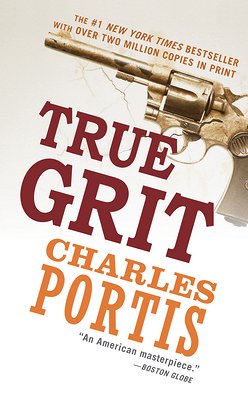APS TOGETHER
Day 3
From p.40 ("Some people will say...") to p. 54 ("The defendant is remanded into custody.)
September 5, 2020 by Ed Park
Two things I wanted to mention earlier: Mattie’s tic of putting certain words “in quotes” (e.g., “scrap”) and her use of cliché (“trilling a joyous anthem to spring,” “There is no knowing what is in a man’s heart”).
Both remind us that (for all that we “hear” the book as an oral account) this is a written document. The unexpected bits in quotations catch us off guard; the clichés, counterintuitively, deepen her character—they’re often glimpses of her belief system.
A side order of politics: How many readers today will know what she means re backing the Democrats & Al Smith “not only because of Joe Robinson”? (JR was Arkansas gov, & VP nominee on losing Smith ticket.) How many readers in 1968 would know?
We see Rooster Cogburn for the first time—an “old one-eyed jasper,” heavyset. He resembles Grover Cleveland. (As with drummers, I had to look up jasper: "a rustic simpleton" per the OED.)
“Some people will say, well there were more men in the country at that time who liked Cleveland than did not. Still, that is how he looked.” M. uses a visual cliché and somehow makes it work.
Side note: That expanse of land couldn’t be more topical: https://www.nytimes.com/2020/07/09/us/supreme-court-oklahoma-mcgirt-creek-nation.html
The court transcript (not official “but faithful enough”) is the one formal divergence from Mattie’s straight first-person narration. What purpose does it serve? Insight into who Rooster is, unclouded by M.’s later feelings.
I always find transcripts riveting (my ears perk up when Nina Totenberg reads Supreme Court doings on NPR) in a reality-hunger sort of way. They’re miniature plays, and this one’s a masterpiece: funny (“Hogs indeed”), exciting, unsettling.
Portis wants us to see, early & up close, Rooster’s deeply compromised nature (there is more to come). Entertaining as transcripts can be, Portis means to trouble us.
After we have a glimpse of Rooster, M. switches to his words: his testimony before Judge Parker. A telling choice: to see this ruthless man of action (whose lack of education is a sore point) chafing against the legal system.
Who he is on paper: “I am a deputy marshal for the U.S. district Court for the Western District of Arkansas having criminal jurisdiction over the Indian Territory.”
We understand why M. chooses Rooster to go after Chaney—as well as his considerable flaws. Hard to read this account of his actions against the Whartons and not think of recent incidents of police violence.
Mattie is right to go after her father’s killer. Was Rooster right to kill two of the Whartons? What about the fact that his partner, Columbus Potter, dies of his wounds from this incident (leaving “a wife and six babies”)?
Our first intimation that revenge is never clear cut.
